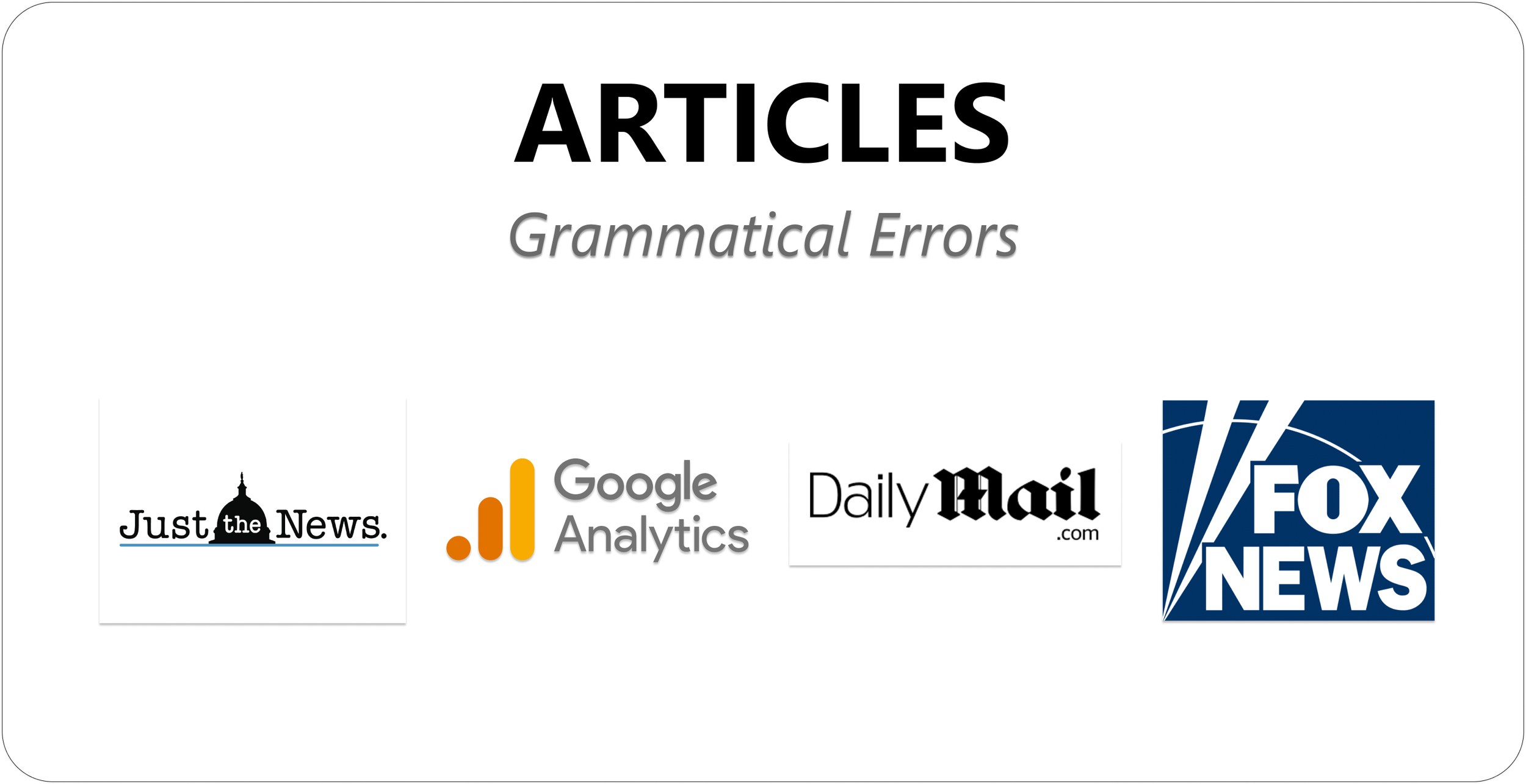If you’ve found grammatical errors in headlines or articles, then we’re both on the same page.
Please read below for the ones I’ve found, so far:
Error: “They disputed studies suggesting the group has an advantage.” Article
Defining the problem: It’s a little difficult to definitely know who is suggesting what.
The sentence in the second bullet point can be read that *the doctors* suggested the content of the second clause of the sentence, or it can be read that *the studies* were suggesting the content of the second clause of the sentence.
Once we add words “which” and “that” to the sentence, then it is clear that *the studies* are the ones who suggest the second clause of the sentence.
To fix it: Therefore, the better sentence for this article is: “They disputed [quantity of] studies which suggested that the group has an advantage.”
Error: “This let’s you collect data that’s customized…” Note: At the moment, this article is not easily found/available.
Defining the problem: “Let’s” and “lets” have identical sounds when spoken out loud. The differences between the two of them –
“Lets” is the third-person singular present tense form of the verb “let”, meaning: to allow, release, or suppose,
“Let’s” is a contraction of the words “let” and “us”
To fix it: Therefore, in this specific sentence, “let’s” should be changed to “lets”.
Error: “…has released a undercover sting video…” Note: At the moment, this article is not easily found/available.
Defining the problem: This is an easy-to-spot, easy to explain, and easy-to-cure grammatical error.
The indefinite article “a” and “an” are used to refer to a person or thing that is not identified or specified.
The article “an” should be used before a word that starts with the sound of a vowel (a, e, i, o, u), regardless of the exact letter used in the first letter of the word.
In this case, the beginning of the speaking of the word “undercover” sounds like a vowel (‘uh-ndercover’).
To fix it: Therefore, the better sentence for this article is: “…has released an undercover sting video…”
Error: “Oregon suspect accused of torturing woman, was released the day he arrived at Nevada prison”. Article
Defining the problem: This is a very unclear and cloudy headline. The way that this is written, ties “released” to “woman,” because they hadn’t used a word to tie “released” back to the subject (the Oregon suspect).
If you read the article, then you’d be able to fill in the blanks, and understand the real meaning behind this article header. Granted, they probably were running low on letter count to catch attention of the headline-readers. However, it is very important to be not only enticing, but also accurate and clear in story headlines.
After adding a comma and the word “was,” then the word “released” now relates back to the suspect in this sentence.
To fix it: Therefore, the better sentence for this article is: “Oregon suspect accused of torturing woman, was released the day he arrived at Nevada prison”.
Error: “…a study in The Lancet found people…” Article
Defining the problem: This article is talking about a discovery that a study detected.
ambiguous
“Found people” is translated to mean that the researchers literally located people for whom they had been searching (example: police found the suspect).
The researchers in this study weren’t expecting to locate people; they moreso were searching for patterns among a subset of people.
“A study found that” is used to explain a discovery (a common similarity among the group), which better satisfies this article.
To fix it: Therefore, the better sentence for this article is: “…a study in The Lancet found that people who work in jobs that required medium to high physical activity…have a greater risk of dementia or mild cognitive impairment (MCI), an early sign of the disorder.”






